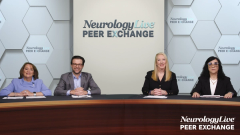
Immunogenicity of Biosimilars
Amy Perrin Ross, APN, Patricia Melville, NP-C, and Aliza Ben-Zacharia, PhD, DNP, ANP-BC discuss importance of evaluating immunogenicity of biosimilars.
Episodes in this series

Amy Perrin Ross, APN, MSN, CNRN, MSCN: Let’s take a minute and switch gears here. Aliza, I’m going to ask you to talk about why immunogenicity is important when we’re discussing a biosimilar.
Aliza Ben-Zacharia, PhD, DNP, RN, ANP-BC, FAAN: Yes, [it is] absolutely important. Immunogenicity happens usually in protein-based therapeutics, and it’s their tendency to sometimes trigger a response, an immune response in your body. You create antibodies against the medications, and usually it’s activated by T cells and B cells. They form these antibodies that may eliminate or reduce the efficacy of the medication and sometimes lead to complications that even may be life-threatening. So, it’s really important to think about immunogenicity.
We see people develop antibodies against medications with the biologics and with the biosimilars. The longer that patients are on a biologic or biosimilar, they have a higher risk to develop antibodies to the drug. Very interestingly, in the past 2 weeks, I saw a patient who is on natalizumab, for example, for the last 5 years, and she had a very mild sensory relapse. I was thinking about antibodies at the time because for someone who is on natalizumab for so many years, yes, we follow JC [virus] antibody, but at that time, I was thinking I should check antibodies, which I did. The patient’s comment was, “Do you think that’s what happened?” I said natalizumab is not a cure, it’s 60%. So, you don’t necessarily develop antibodies, you may be able to continue, but our obligation as clinicians is to check for antibodies.
I think it’s very important that we follow patients and monitor, realizing that antibodies may be transient and sometimes they are persistent. Sometimes we can check and there are no antibodies, and that’s why sometimes when you look at the data, you have to question some of it. I think we need to follow it and have world data and make sure that, as clinicians, we partner and share data about immunogenicity, as we have done with interferon in the past and with other medications, just to think about the efficacy that can be impacted by developing antibodies.
Amy Perrin Ross, APN, MSN, CNRN, MSCN: Indeed. Sometimes patients think that now we have so many MS [multiple sclerosis] medications, we just pull one out of a hat, right? I think, Aliza, you did a wonderful job of talking about some of the critical thinking that goes into not only our original choice of therapies, but what we may want to switch to and why we may want to switch. Pat or John, any additional thoughts on immunogenicity here?
Patricia Melville, RN, NP-C, CCRC, MSCN: I think it is critically important, particularly when you think about our anti-CD20 [monoclonal antibodies]. Some of them are chimeric models, some of them are humanized. [With] humanized, you’re going to have less immunogenicity, perhaps. You’re going to have less in the way of allergic-type reactions and things. This is something that I consider when I’m prescribing for my patients. I think to also tag on to what you just mentioned, Amy, the MS treatment landscape has become incredibly complex and diverse. I come from the days when we just had a handful of MS therapies. Now, we have 2 dozen, and it really is challenging.
Transcript Edited for Clarity
Newsletter
Keep your finger on the pulse of neurology—subscribe to NeurologyLive for expert interviews, new data, and breakthrough treatment updates.













